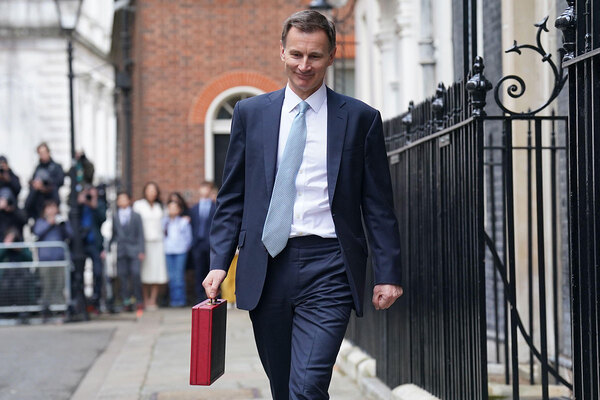You are viewing 1 of your 1 free articles
The lowdown on ‘bespoke’ council housing deals
The government wants ‘bespoke deals’ with councils to fund building, however any negotiations will be coloured by the Treasury’s aversion to more debt, says Nathaniel Barker. Illustration by The Boy Fitz Hammond
In the world of housing, February feels an awfully long time ago. Since then the horrific fire at Grenfell Tower has transformed the policy landscape and the government has shown a renewed interest in social housing.
But cast your mind back and you may recall the Housing White Paper showed the first signs that the government might see a role for councils in housebuilding. The highly anticipated white paper said government is interested in the scope for “bespoke housing deals” with local authorities in “high-demand areas, which have a genuine ambition to build”.
Later, in May, the Conservative Party manifesto went further: “We will enter into new council housing deals with ambitious, pro-development local authorities to help them build more social housing. We will work with them to improve their capability and capacity to develop more good homes, as well as providing them with significant low-cost capital funding.”
Nearly six months on, Inside Housing takes a look at whether councils have taken ministers up on the offer, and how the discussions are progressing.
In March, long before the Conservatives published their manifesto, a trio of local authorities sat down with Department for Communities and Local Government (DCLG) civil servants to discuss their own deals. Indeed, the wheels had been in motion for this meeting while the Housing White Paper was being prepared.
The three authorities were Stoke-on-Trent City Council, Sheffield City Council, and Newark and Sherwood Homes – the ALMO of Newark and Sherwood District Council. They are all asking for extra Housing Revenue Account (HRA) flexibilities, mainly in terms of extra capacity to borrow and greater control over Right to Buy receipts. Rent settlements also formed part of the discussions early on, although this has been dropped since the government’s announcement that it will be returning to Consumer Price Index plus 1% after 2020.
Talks were inevitably slowed somewhat by the snap general election and the devastating Grenfell Tower fire, but there have been two more meetings since, with the most recent in late September.
“I would say the discussions have been very good,” says Rebecca Rance, chief executive of Newark and Sherwood Homes. “It has been an evidence-based process and the discussions have been quite thorough.”
The council has a little more than 2,300 households on its waiting list, with a current programme in place to deliver 335 units during the next four years using all its HRA resources.
It believes that with extra borrowing capacity it could increase that number to around 840 if some homes were for market sale.
Talks have been research-intensive with officials keen to focus on details, says Ms Rance. “They’ve definitely included elements of why we would need to do this here and details like how it would be procured and whether there are the right skills available to support our development plans.”
Newark and Sherwood’s own strategy has been to identify schemes across the district which it considers deliverable but are unappealing to other providers and build up a case for each.
“I would say the discussions have been very good. It has been an evidence-based process and the discussions have been quite thorough.”
Along with its much bigger friends Stoke and Sheffield, it has supplied all the information it can and is awaiting a response.
It’s worth noting the caveat attached to the Conservatives’ manifesto commitment to bespoke deals.
It promised to deliver “new fixed-term social houses, which will be sold privately after 10 to 15 years with an automatic Right to Buy for tenants”. There has apparently been little mention of this product in the discussions since, though sources say they still think that could form part of any of the DCLG’s proposals.
Eight English cities have been developing plans for housing city deals with the DCLG and the Homes and Communities Agency, and suggest deals could increase output by 25% during the next five years.
The DCLG told Inside Housing it is “in discussion with a number of local authorities across the country to strike housing deals which support councils’ ambitious plans for new homes”.
One of these is Winchester City Council, which is requesting extra HRA borrowing capacity to help it increase its development between now and 2020 from the 100 starts it has planned to nearer 300.
Inside Housing also contacted the 16 councils with less than £1m borrowing headspace on 31 March, according to government statistics. Of the nine that responded, seven – Gateshead, Luton, Central Bedfordshire, Dudley, Eastbourne, Harrow and Stroud – confirmed they had either approached the DCLG to discuss a housing deal or were interested.
So that’s at least around 11 councils vying for deals, including the original trio. But there is a question about how many authorities the government will consider negotiating with. Sources close to the Stoke, Sheffield, and Newark and Sherwood conversations said civil servants have made it clear that deals will not be widely available.
“They’ve definitely included elements of why we would need to do this here and details like how it would be procured.”
One claimed that when pressed, officials said “they couldn’t deal with more than 10 or so authorities in this context”.
The issue, as ever, will be funding.
There is a cost to the public purse associated with letting councils take on extra debt – and the amount the chancellor chooses to set aside will dictate both the number of deals and the nature of the final offers.
Inside Housing understands that officials have previously mentioned the next “fiscal event” as a date for an announcement on the deals. To the rest of us, that sounds like the Autumn Budget. With council housing firmly on the political agenda, how these deals move forward could well depend on what’s inside Philip Hammond’s red briefcase on 22 November.











